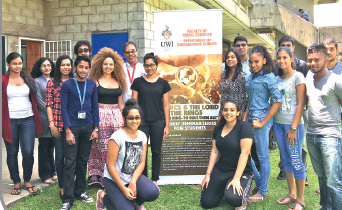|
October 2016

Issue Home >>
|

 The Lord of the Rings is by far the best fantasy-fiction book ever written with sales of more than 100 million copies. It is compelling to the modern reader because it contributes to the satisfaction of the desires of heart and mind through wonder and amazement which the world has largely forgotten. This is accomplished through our internal struggle between friendship and betrayal, free will and choice, good and evil, virtue and vice, power and authority, temptation and sin, repentance and reparation, time and eternity, grace and nature, death and immortality, natural and supernatural, toward achieving happiness. It reflects our story which shows the richness and ennoblement of ordinary life through the development of the virtues. The Lord of the Rings is by far the best fantasy-fiction book ever written with sales of more than 100 million copies. It is compelling to the modern reader because it contributes to the satisfaction of the desires of heart and mind through wonder and amazement which the world has largely forgotten. This is accomplished through our internal struggle between friendship and betrayal, free will and choice, good and evil, virtue and vice, power and authority, temptation and sin, repentance and reparation, time and eternity, grace and nature, death and immortality, natural and supernatural, toward achieving happiness. It reflects our story which shows the richness and ennoblement of ordinary life through the development of the virtues.
Ethics and the Lord of the Rings is a weekly seminar series, now in its 7th year. It is a one-hour session during which the extended version of the movies is shown for approximately 30 minutes followed by a 20 minute critical discussion on the various themes. The movie acts as a psychological mirror which depicts our journey in life through the character traits of the different personalities. For example, elves represent the artistic, aesthetic, and scientific; men represent traditional, noble, and knightly; hobbits represent cheerfulness, home-loving, family, friendship, all characterised by food and drink, singing and music; orcs represent violence, greed, mistrust, betrayal, abuse of power, in short, the brutish side or defect of human nature. Every central character faces ethical choices and goes through crises with some failing miserably at times experiencing pain, grief, doubt and despair. It is precisely through these trials that one is able to effectively develop virtues and lead a fulfilling life.
One Ring to rule them all, One Ring to find them, One Ring to bring them all and in the darkness bind them. The Ring represents an inordinate pursuit for power to dominate the will of others in order to enslave them. Possessing the Ring leads to an addiction and attachment to wealth, pleasure, social status, validation by others, power, and honour. We then become slaves to such things and end up being controlled by them: the possession possesses the possessor! The One Ring is a seductive and insidious moral disorder or mental sickness that leads to unhappiness.
Students’ feedback
- The seminars allow for a person to look at oneself, to be able to recognise your mistakes and imperfections and find ways to fixed these faults and move on to become a better person.
- Attending these hourly sessions throughout the semester was enlightening, it gave me a better understanding of life, my goals, values and morals allowing me to prioritse what needs to be done and also I was able to put things into perspective.
- It helped me deal with failures and regrets by showing me that I was fighting a losing battle against myself and that the only way to truly move on was to forgive myself and to live in the present.
 The use of the trilogy in relation to real life was remarkable and I appreciated the visual examples and how it applied to my life. I learnt when you accept your role in life, the person you are supposed to be, you begin to live rightly; when trials and negativity cross your path you are able to handle them without compromising your moral alignment. The use of the trilogy in relation to real life was remarkable and I appreciated the visual examples and how it applied to my life. I learnt when you accept your role in life, the person you are supposed to be, you begin to live rightly; when trials and negativity cross your path you are able to handle them without compromising your moral alignment.
- It was really educational and intellectually appealing. But to be honest my motivation for attending was purely for the sake of having a good motivational therapy for the week.
- …the knowledge equipped from this lecture can put one in a better position to deal with the events of their own personal life. I do urge everyone to attend if they can, regardless of job, field of study or age.
- Who would have pictured that lessons on life, philosophy, ethics and inspirational deep thinking can be derived from the Lord of the Rings movie? This seminar enriched me by encouraging me to think about my behaviour and actions.
Co-curricular activities are designed to develop the key attributes of The UWI Graduate. The seminar series is facilitated by Surendra Arjoon PhD, Professor of Business & Professional Ethics, Department of Management Studies. Surendra.Arjoon@sta.uwi.edu
|





